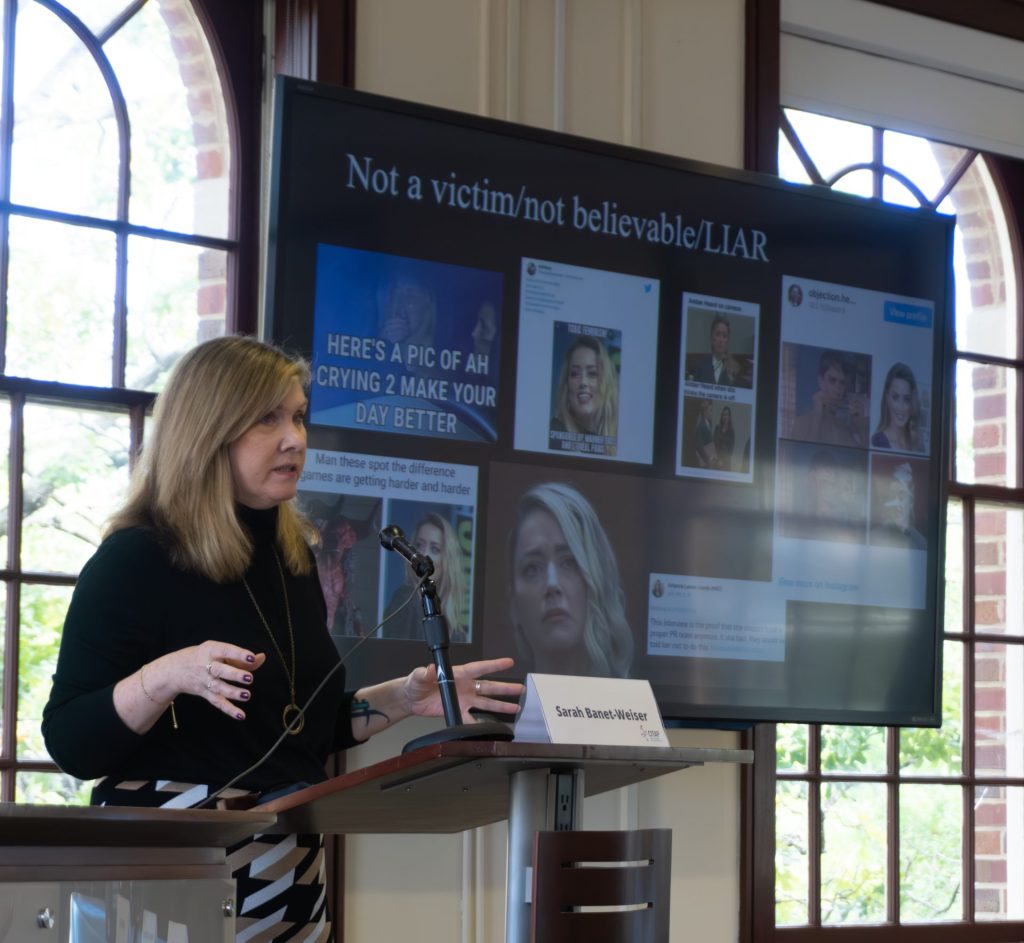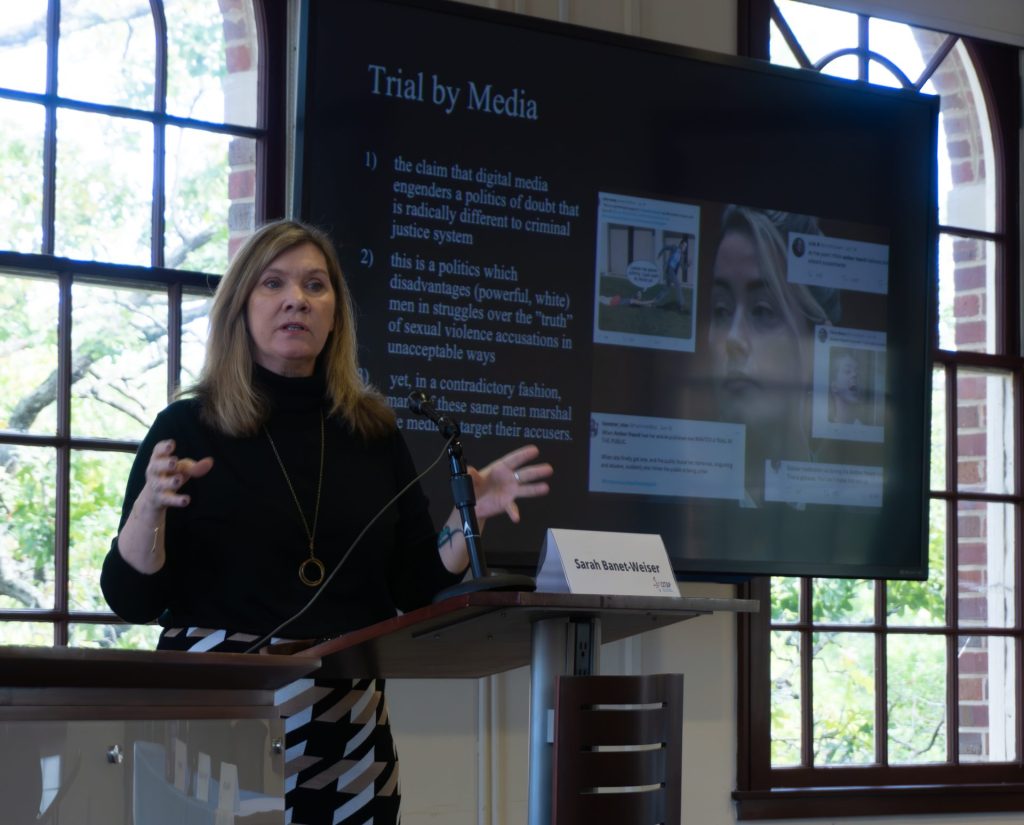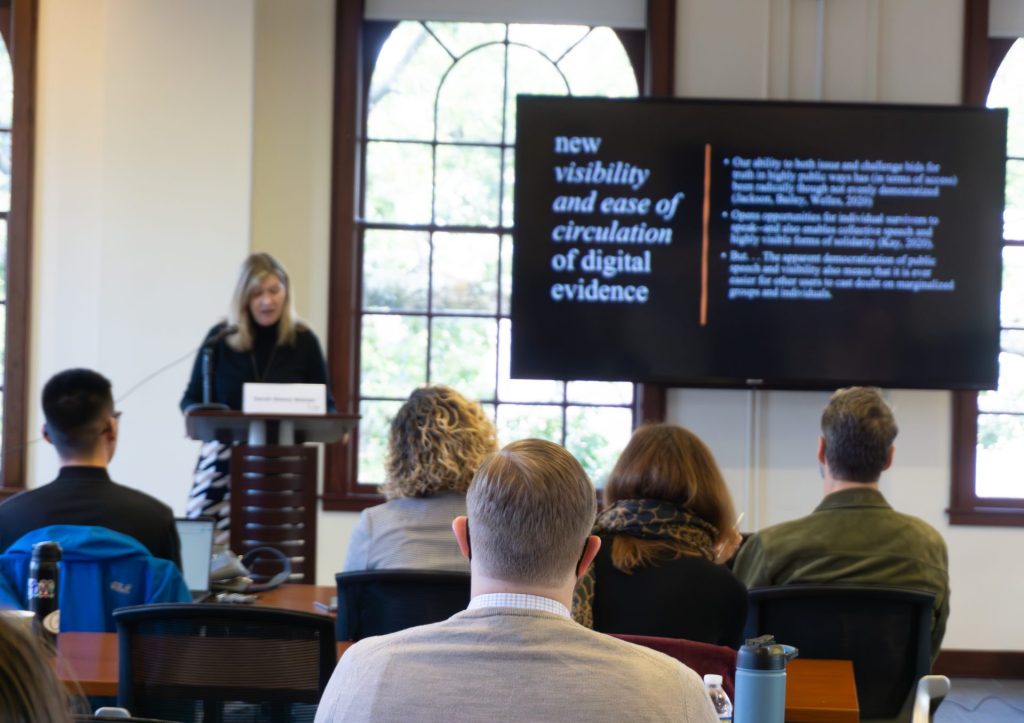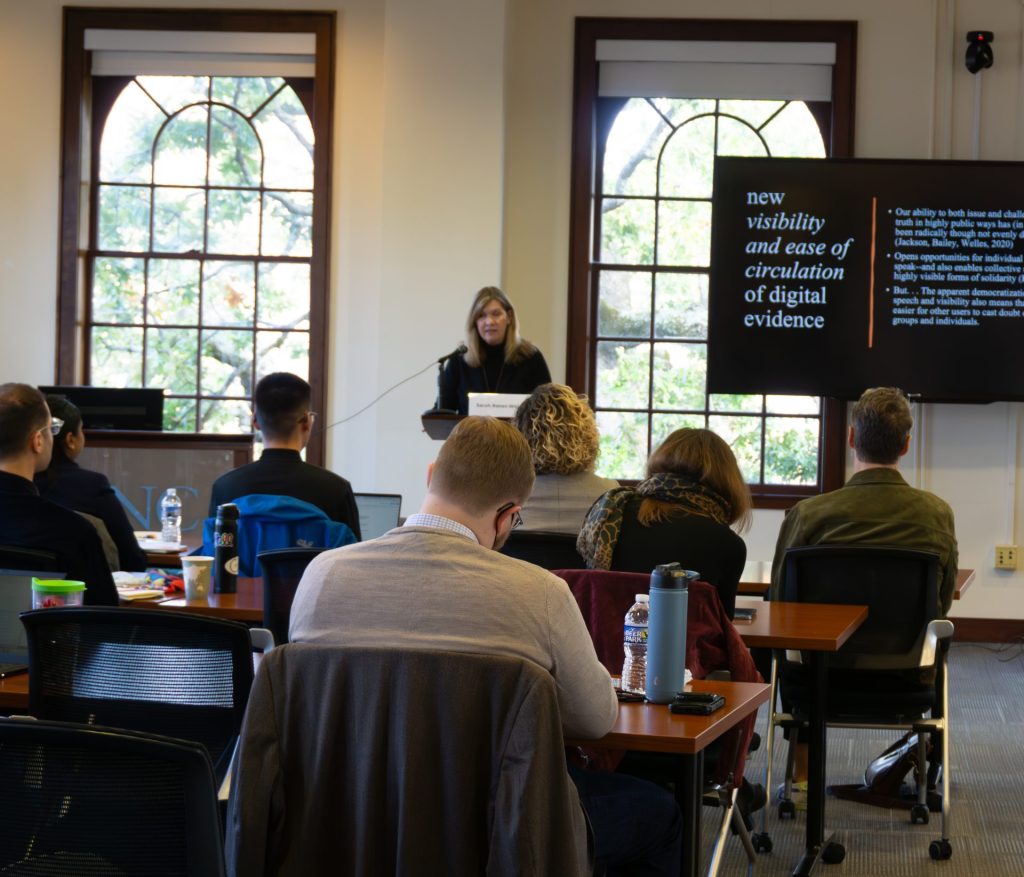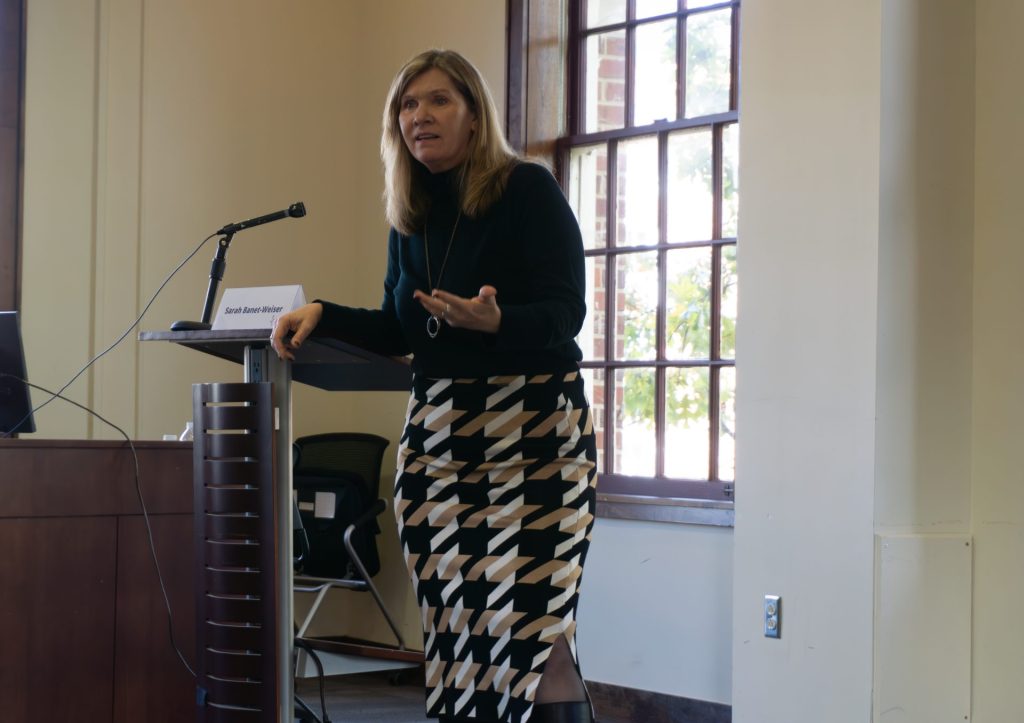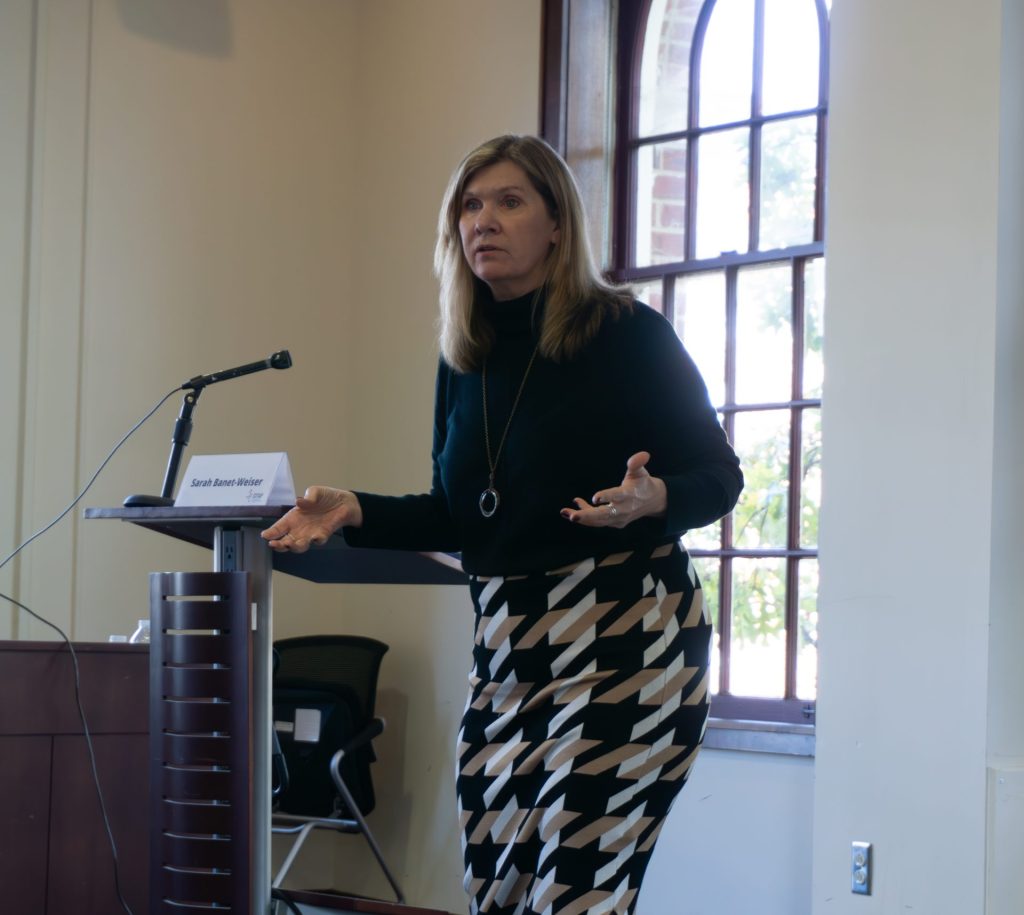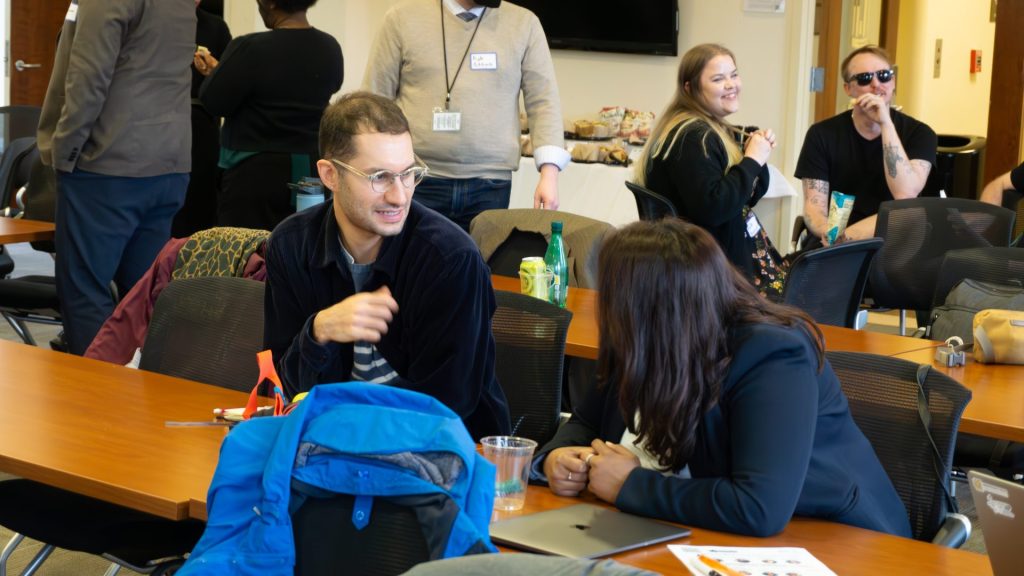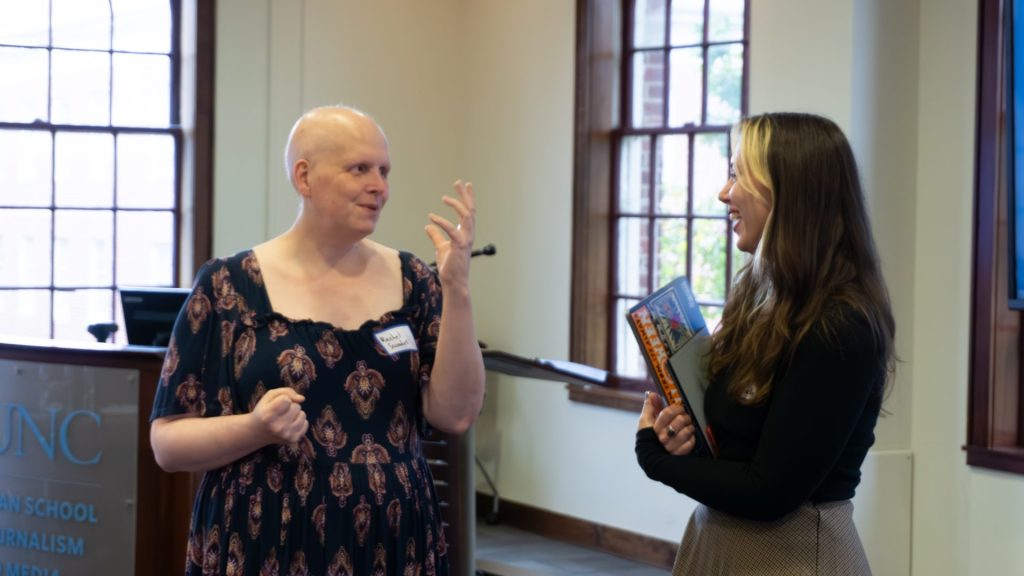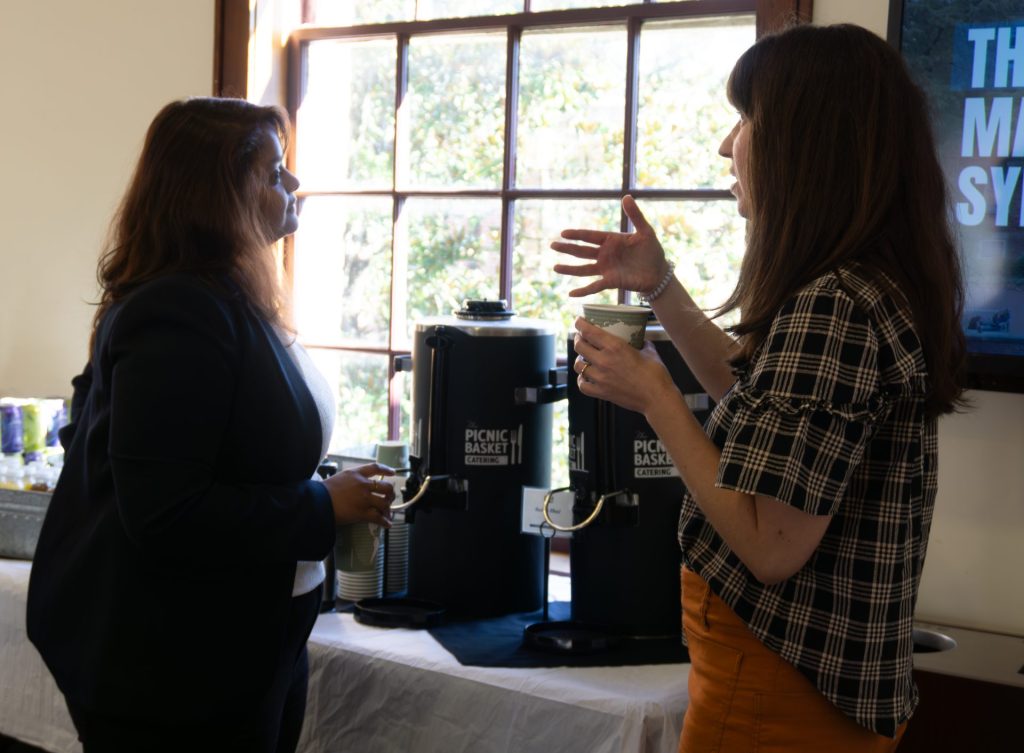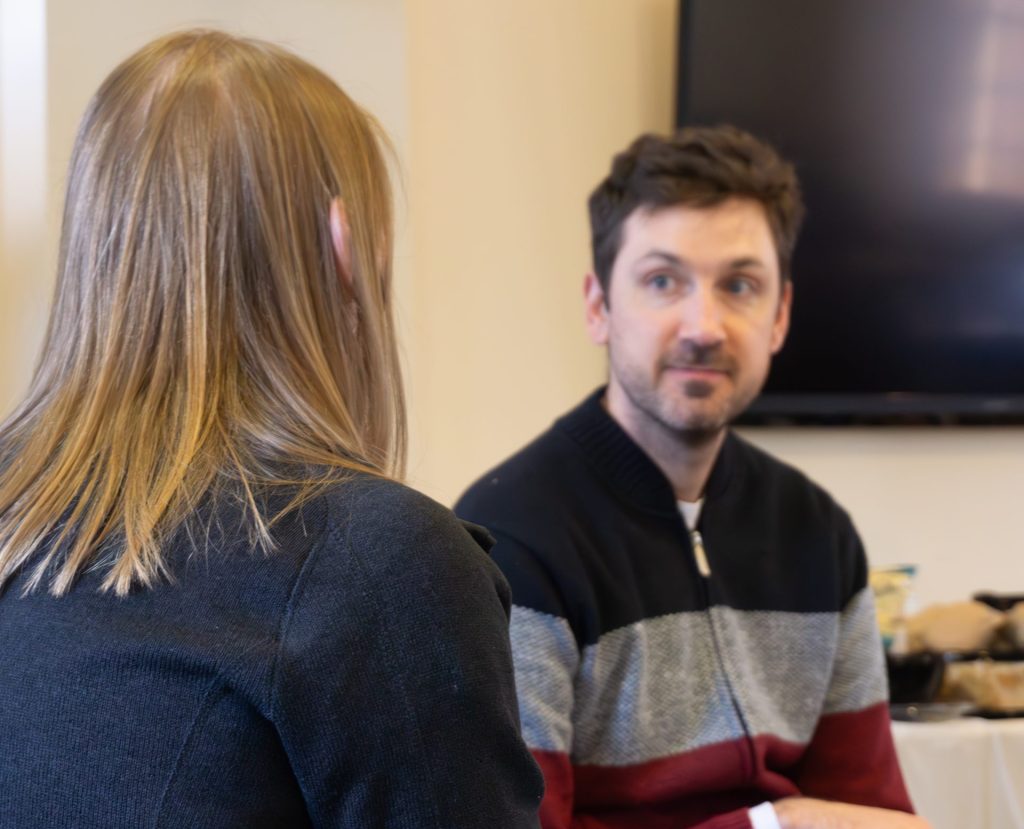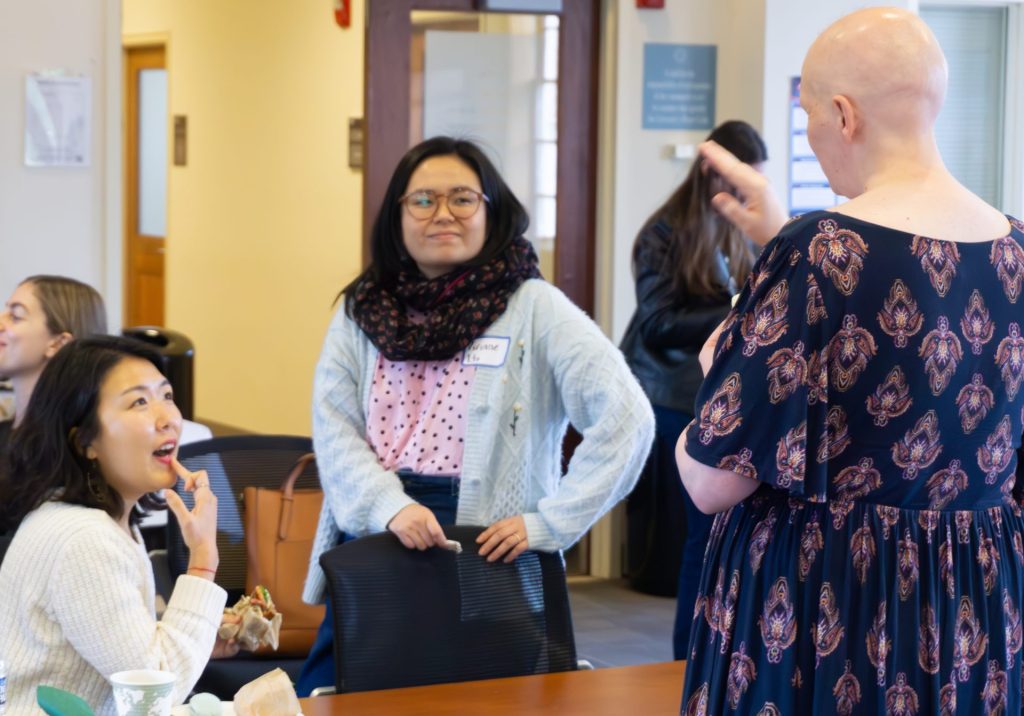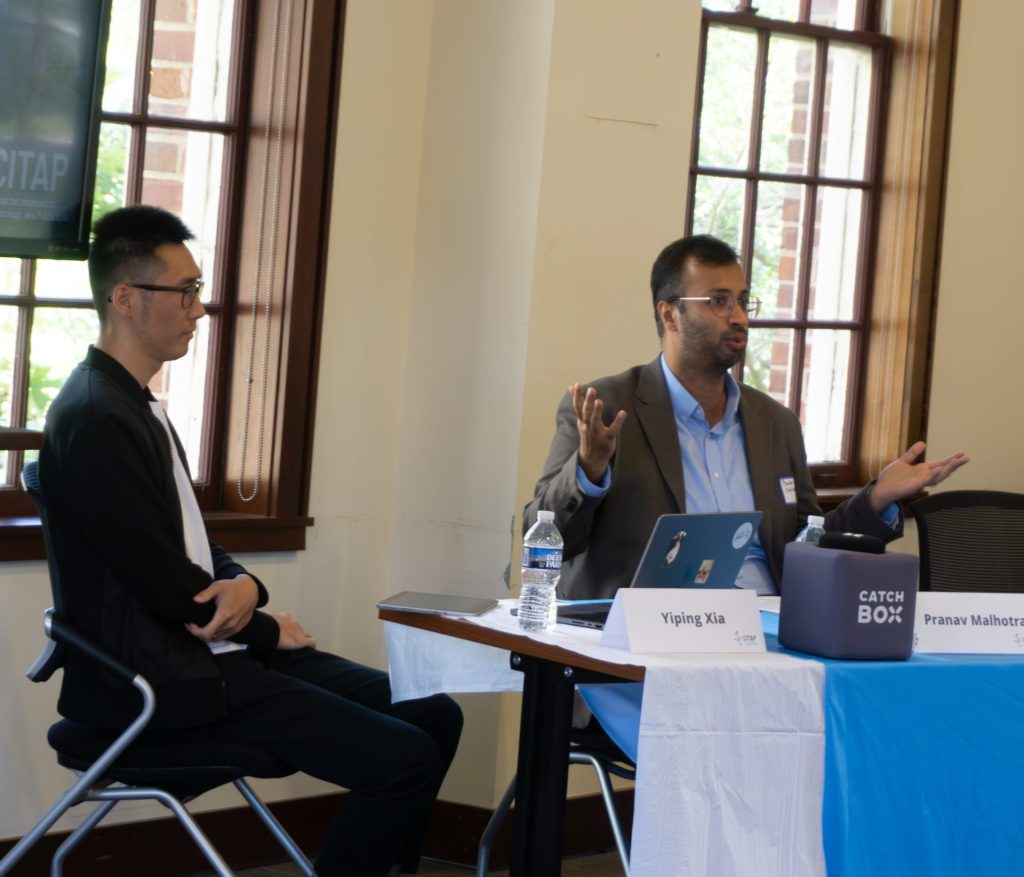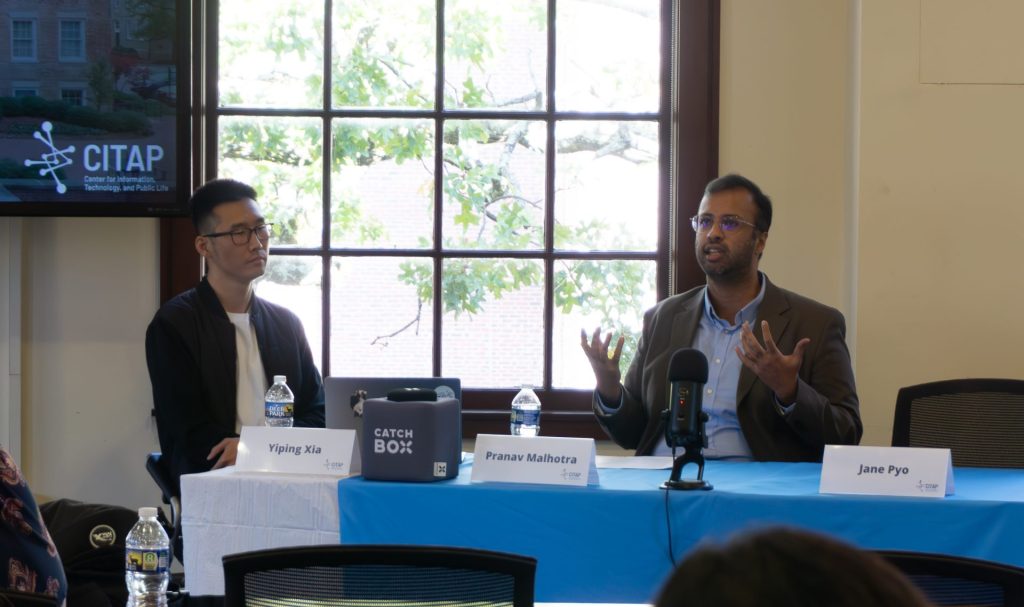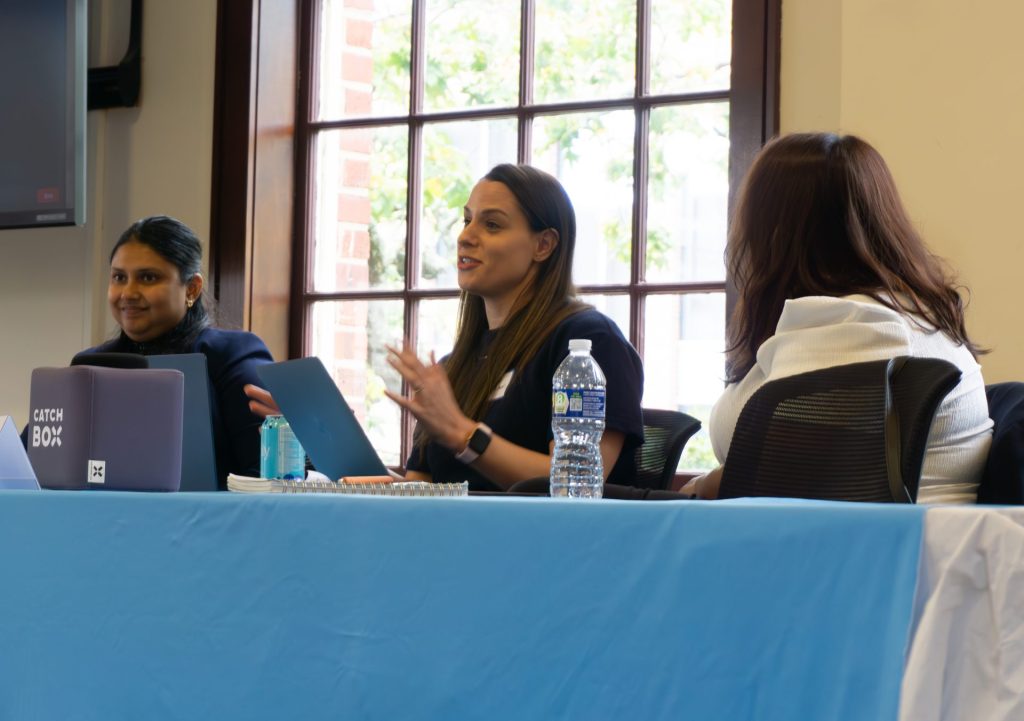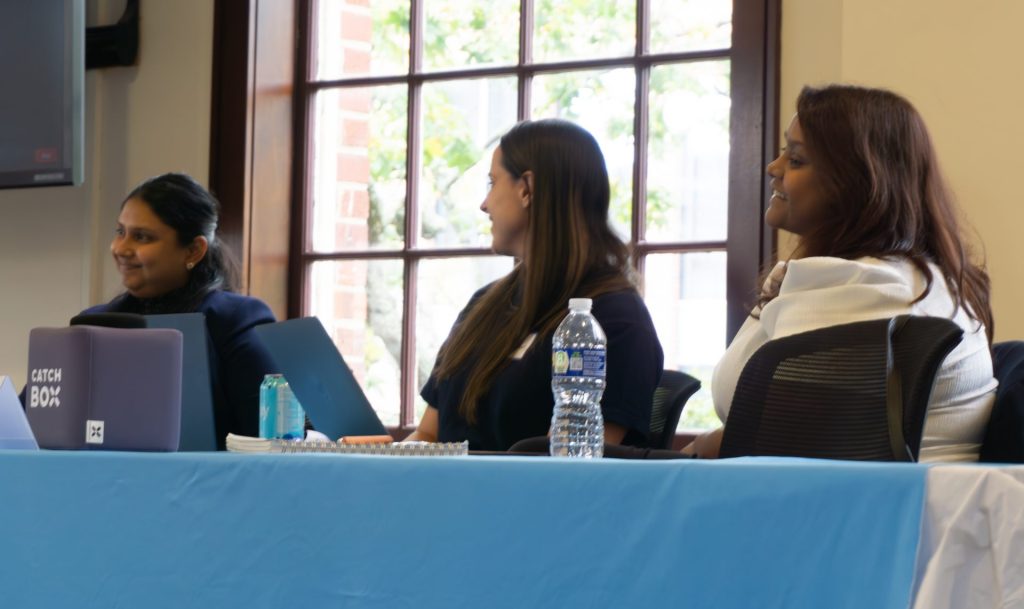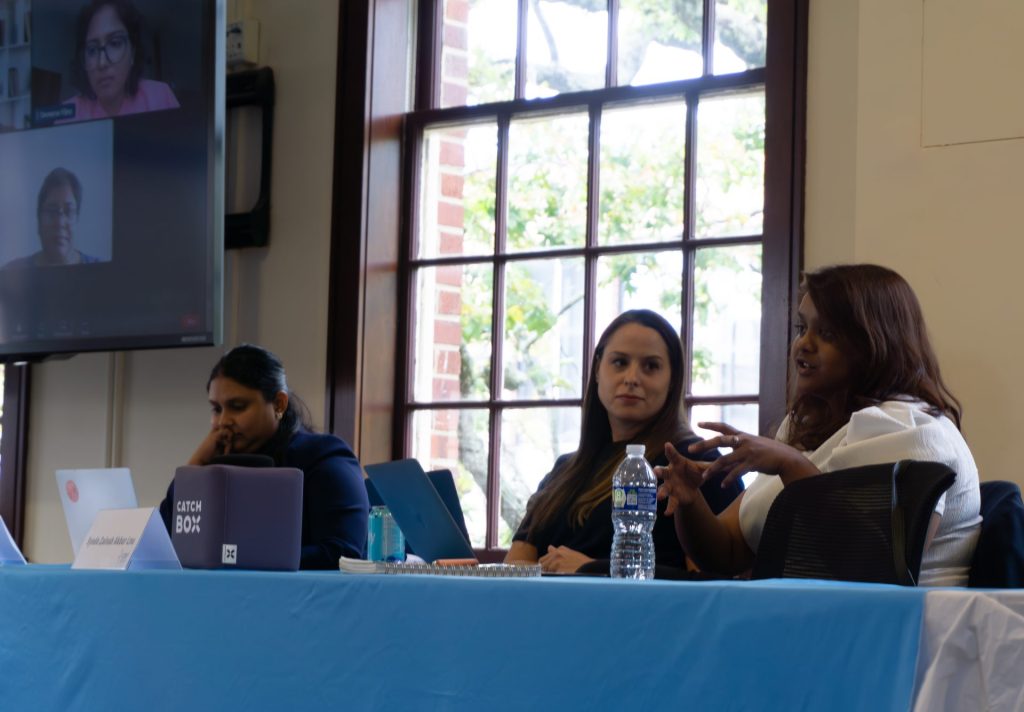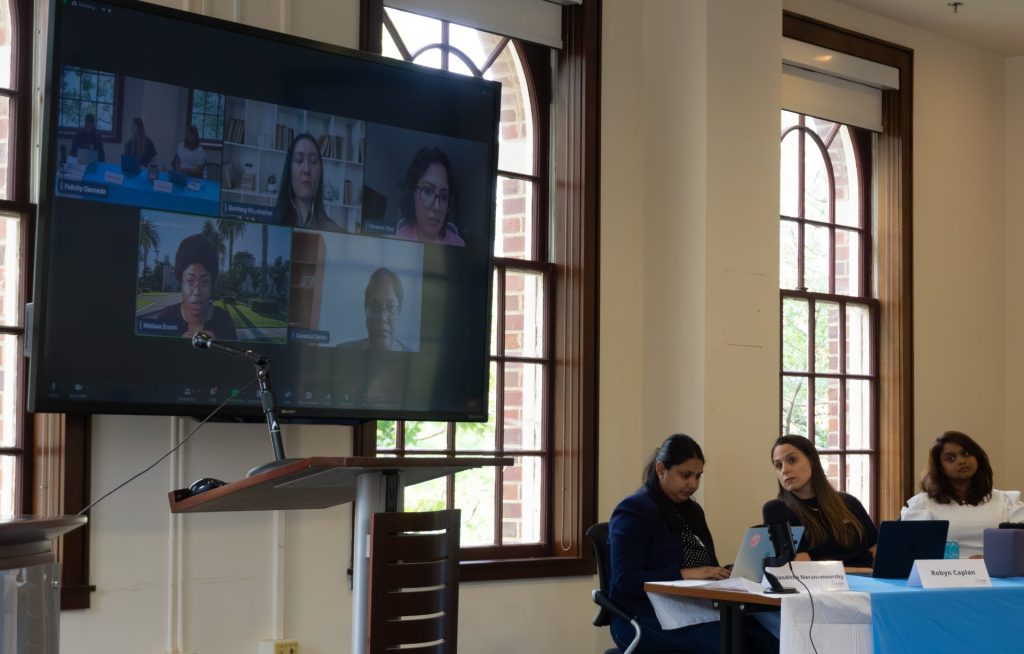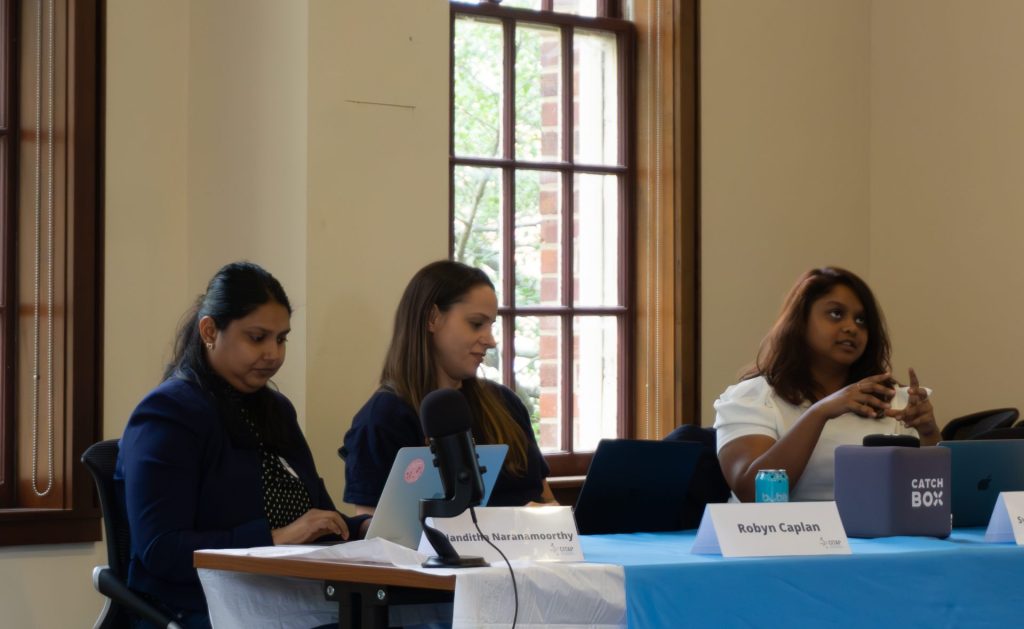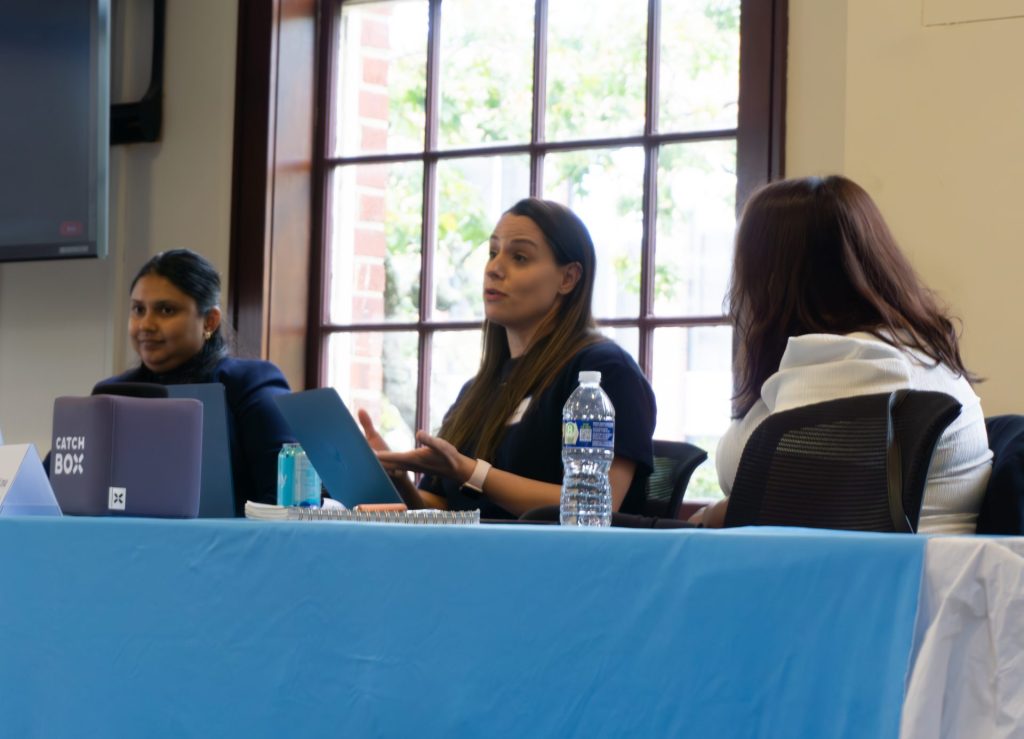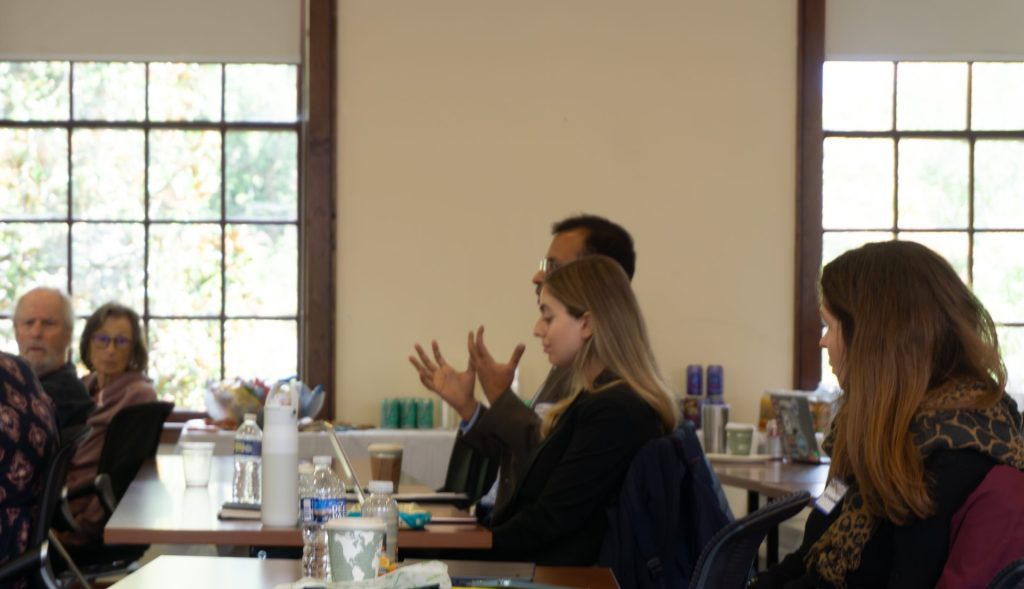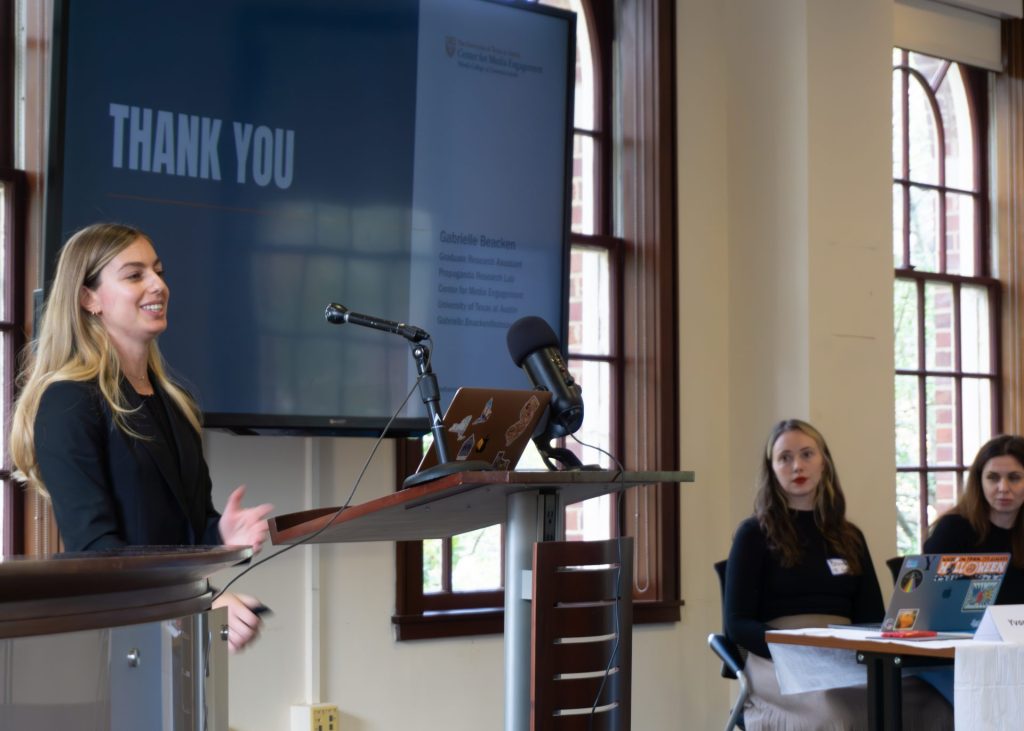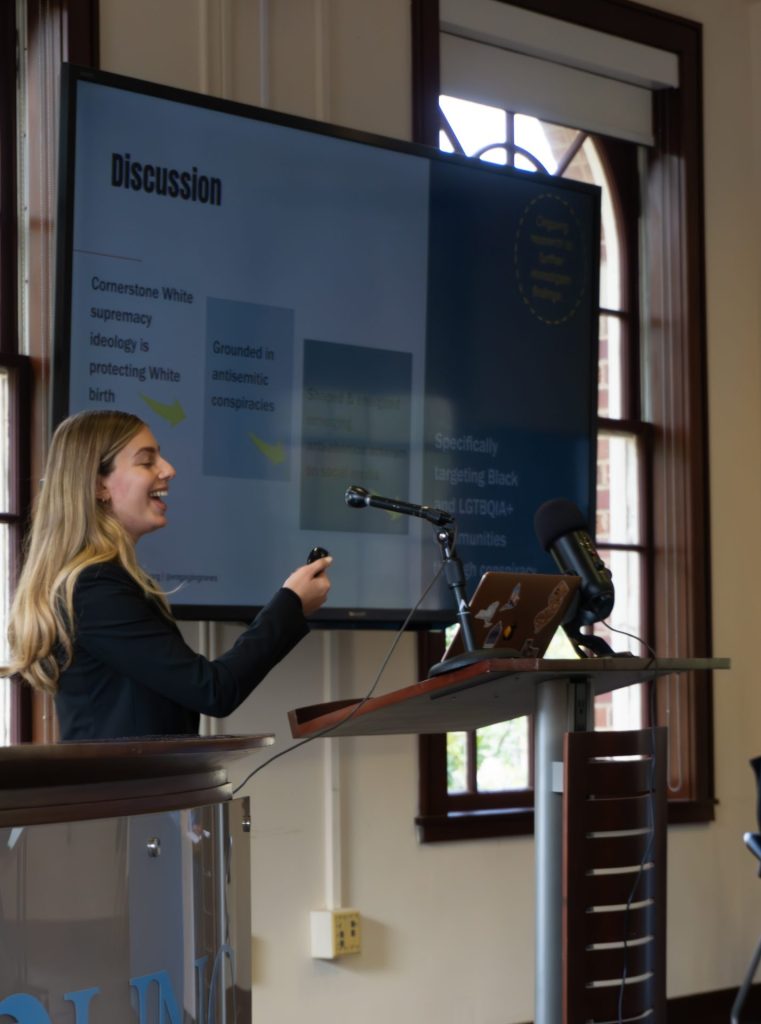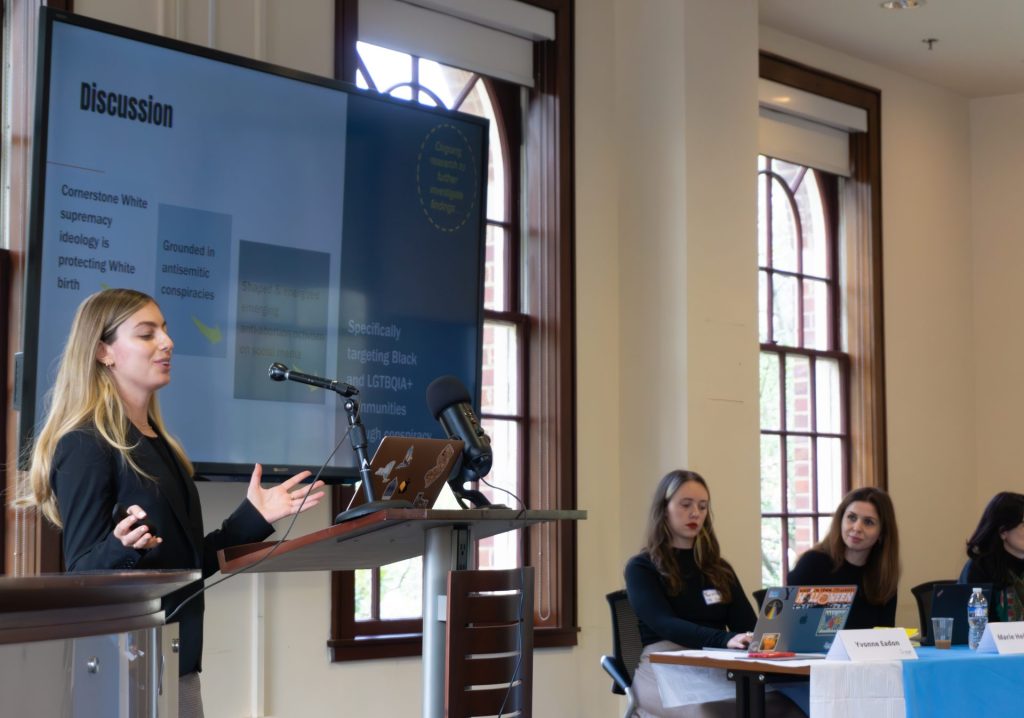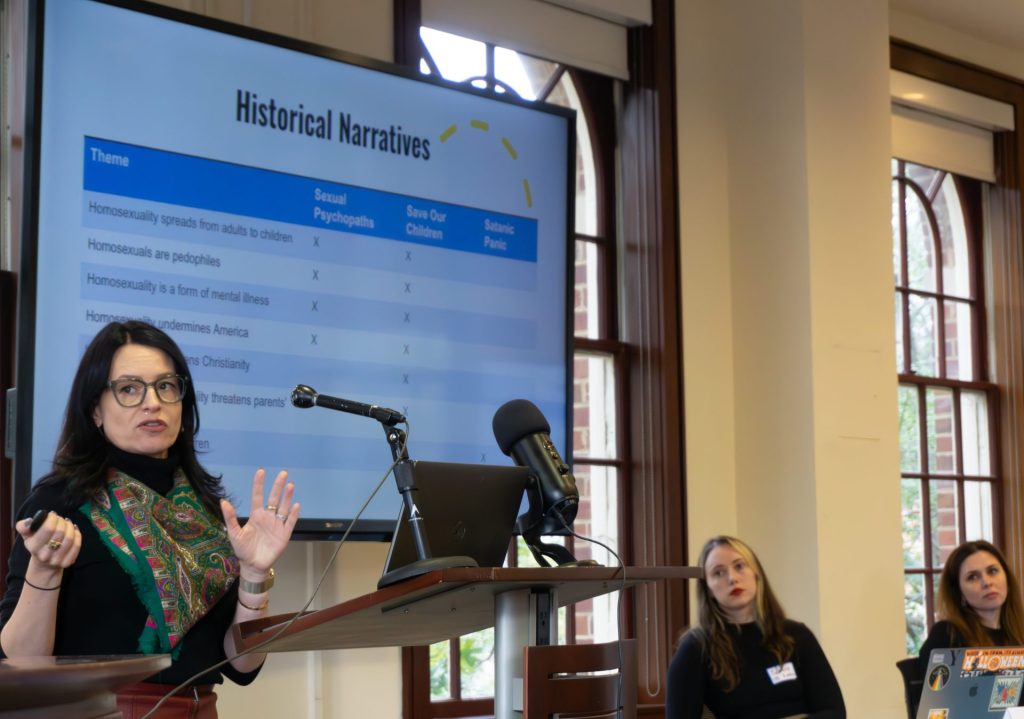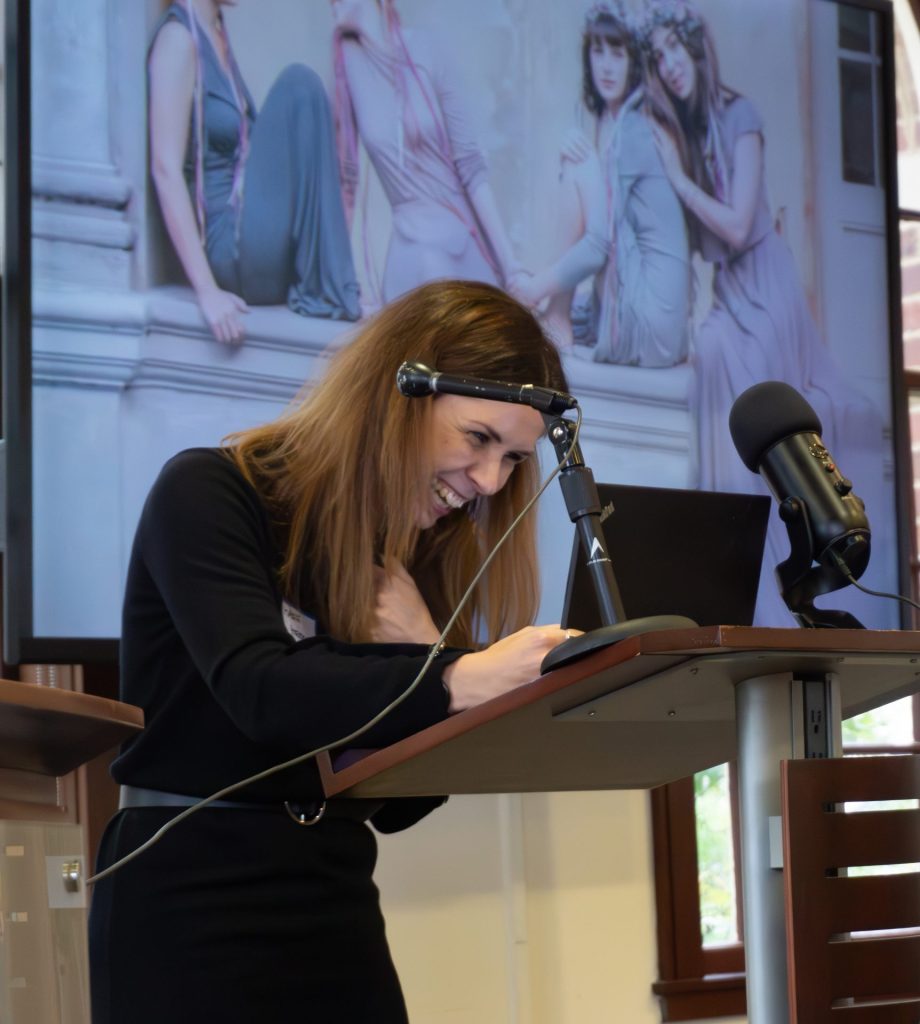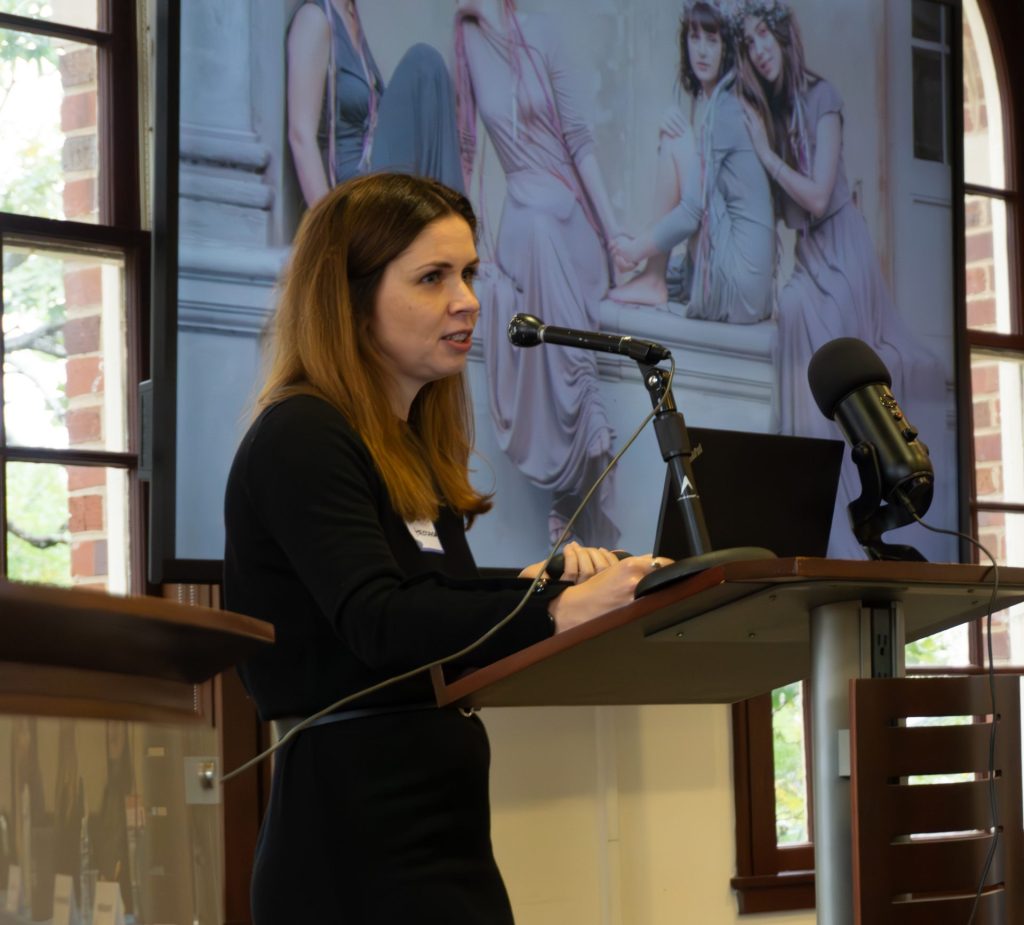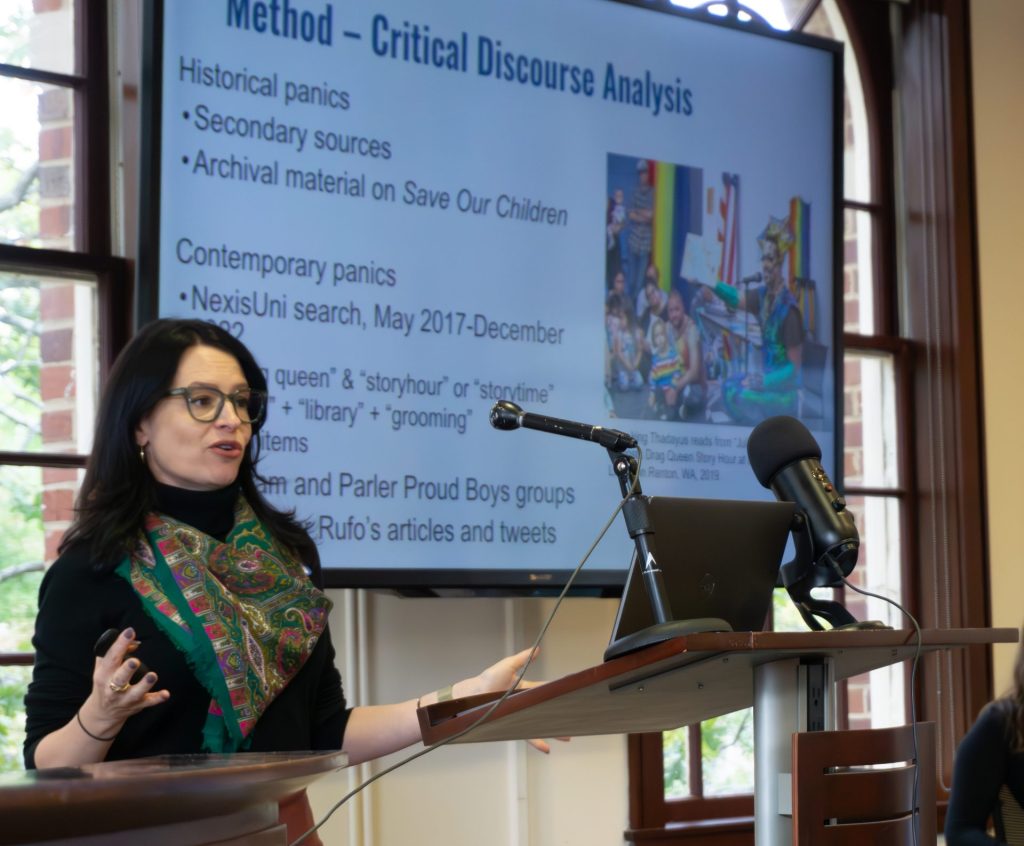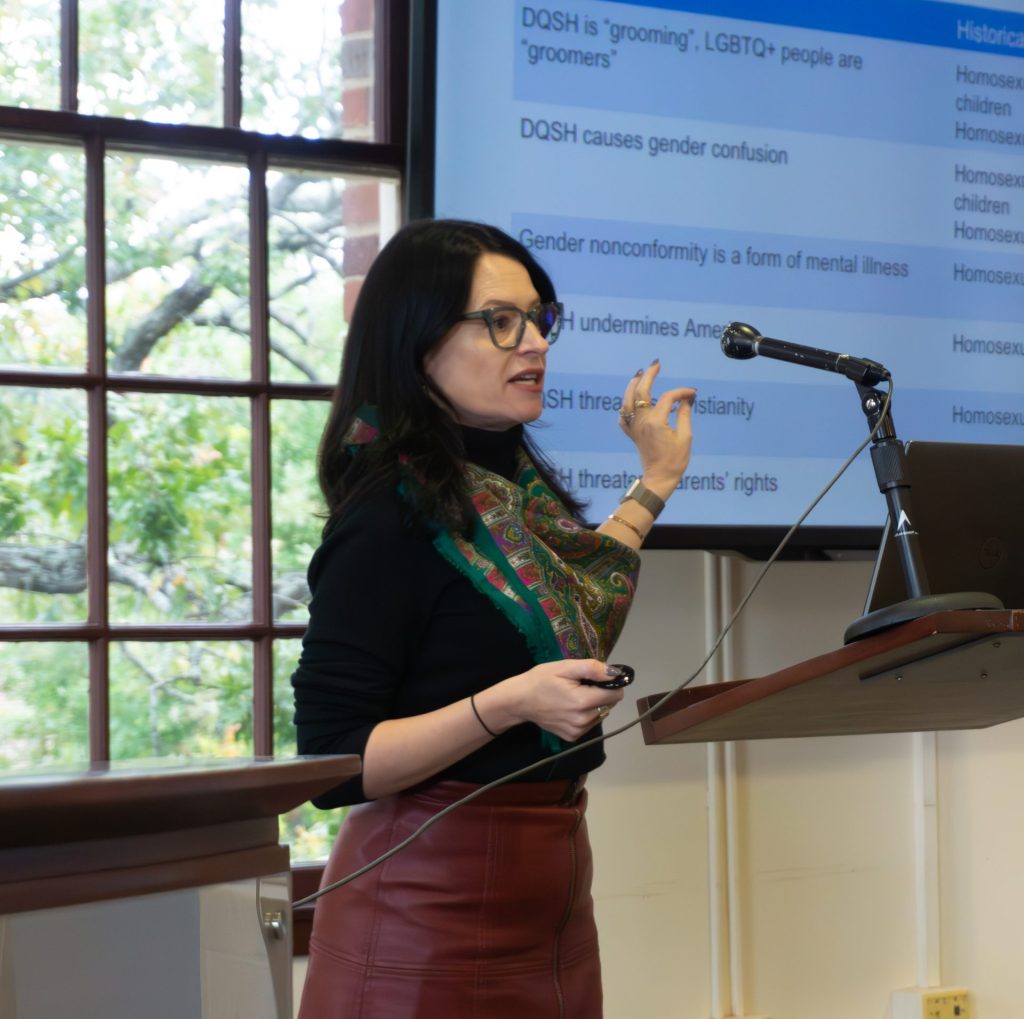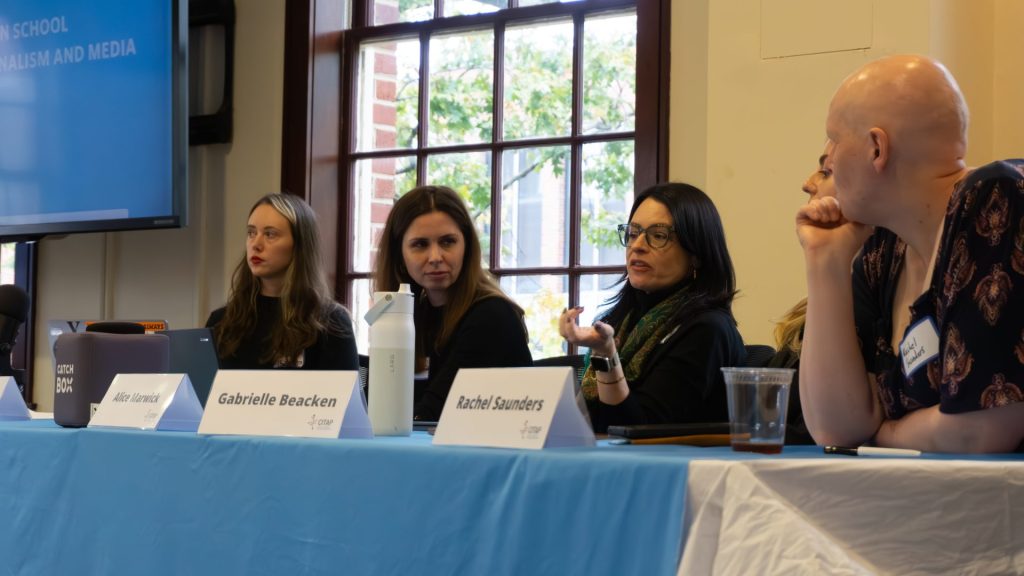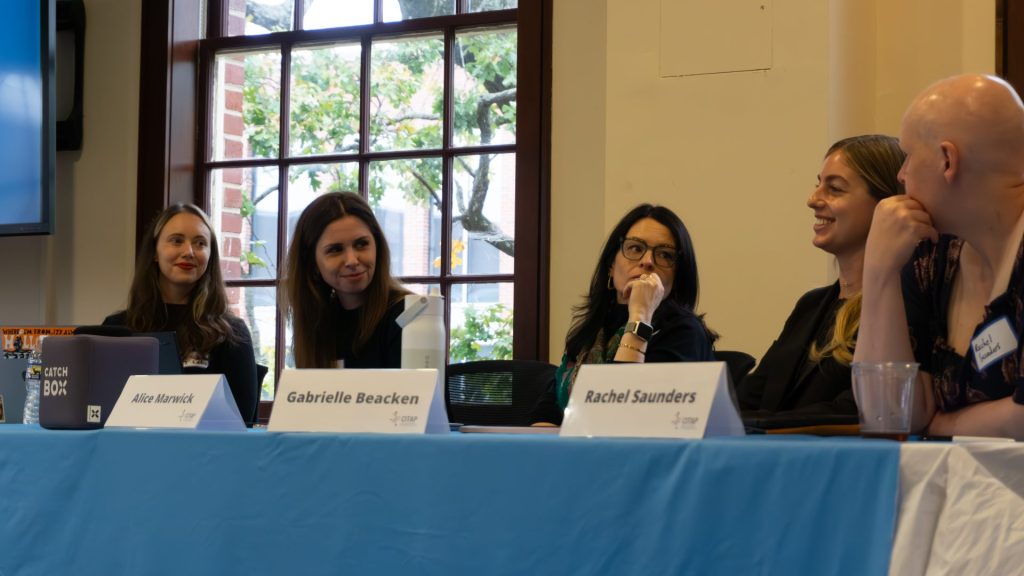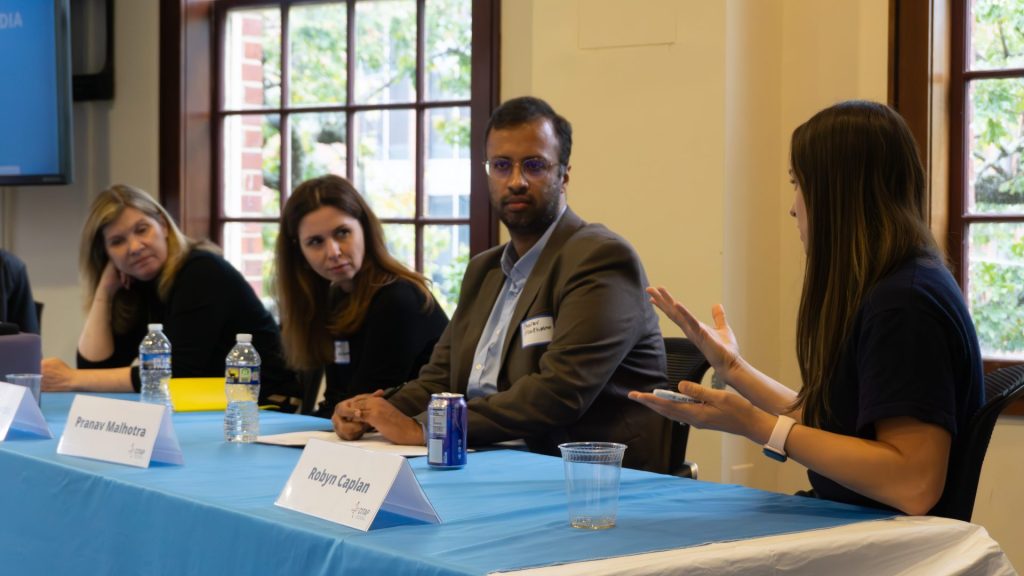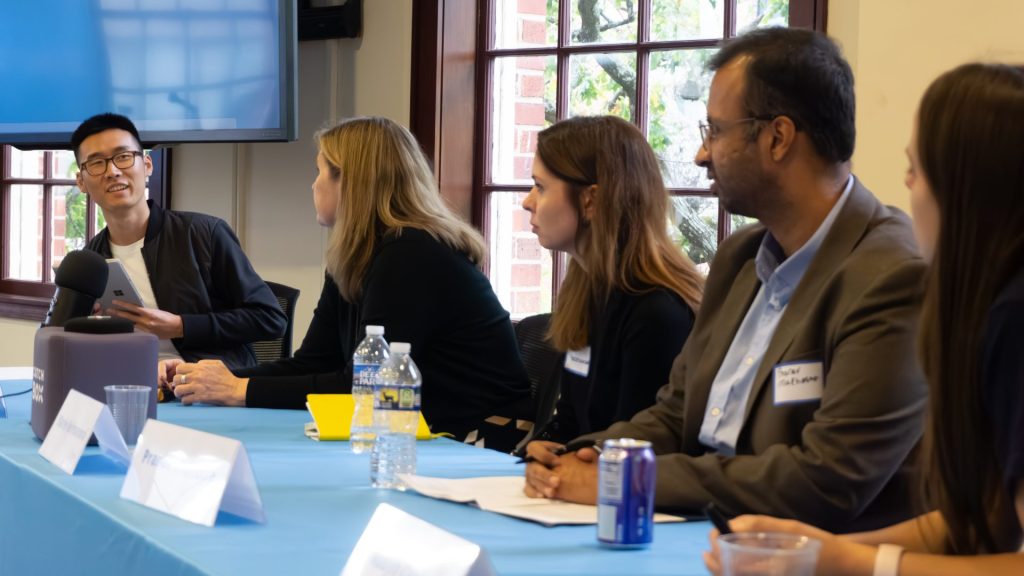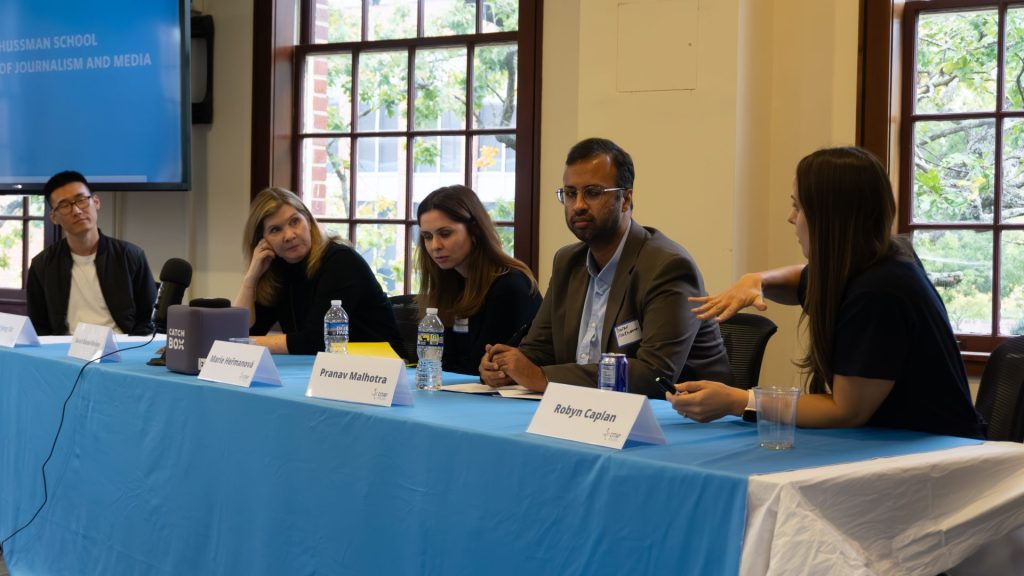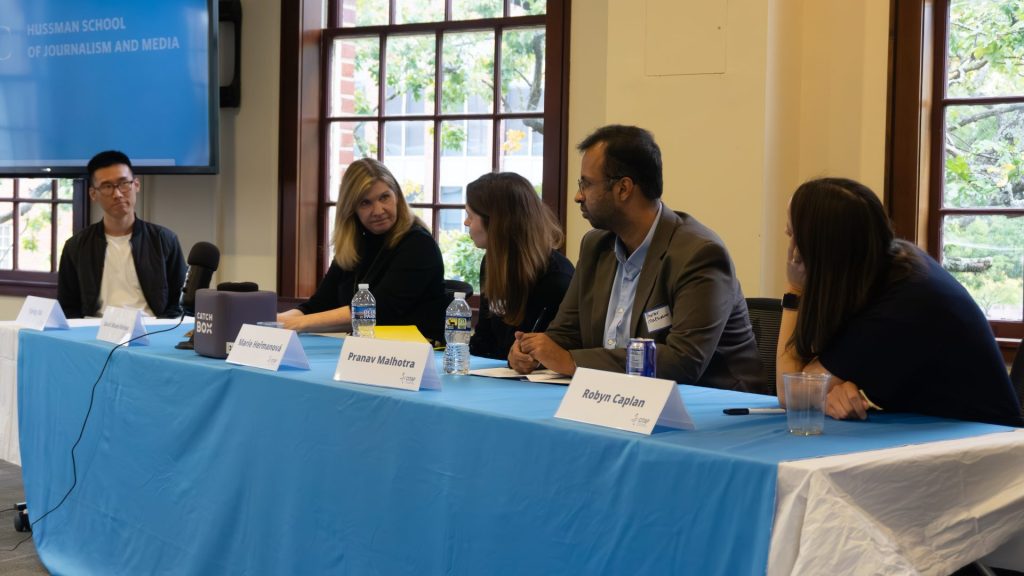
Monday, October 16, 2023
Freedom Forum Conference Center, Carroll Hall
CITAP hosted the Symposium on Misinformation and Marginalization. We had panels with virtual & in-person panelists, a keynote address from Dr. Sarah Banet-Weiser, and more! We discussed research in the areas of misinformation and disinformation in diasporic communities, algorithmic amplification, and in regard to gender and sexuality.
See highlights from the day and recordings of each panel below.
Keynote from Dr. Sarah Banet-Weiser
Dr. Banet-Weiser highlighted the complex dynamics of believability, doubt, and digital evidence in the context of sexual violence accusations. Dr. Banet-Weiser emphasized that while digital platforms had allowed marginalized individuals to speak out against sexual violence, believability remained subjective and often favored those in positions of social and economic power.
The speech explored the question of how doubt was constituted and disrupted in the era of digital media. It discussed the significance of various forms of digital evidence, such as photos, videos, communication records, and the role of testimony in public accusations of sexual assault.
Dr. Banet-Weiser delved into the concept of "receipts," digital artifacts that could support or challenge accusations. These artifacts could be manipulated and recontextualized, leading to debates about their authenticity and interpretation. The speech also touched upon the impact of digital platforms on the spread of misinformation and misogynistic backlash.
Panel on Dis-/mis-information in Diasporic Communities
Yiping Xia introduced Dr. Malhotra, an assistant professor at the University of Michigan Department of Communication and Media, as the anchor to the panel. Dr. Malhotra’s research focuses on the intersection of social and mobile media affordances with cultural and relational norms, particularly within understudied social and political contexts. He has a particular focus on the use of private spaces on social media and how people assessed the credibility of information within these spaces. Dr. Malhotra's work had been published in prominent journals, including Social Media + Society, Computer-Mediated Communication, Digital Journalism, and the International Journal of Communication.
The panel began with a conversation between Dr. Malhotra and Yiping Xia, providing an introduction to the theme of the panel and reflecting on his area of research. Subsequently, the panel featured four presentations from scholars including Dr. Deena Abul-Fattouh from Dalhousie University, Joao Ozawa from the University of Texas at Austin, Dr. Jane Pyo from the University of Massachusetts Amherst, and Dr. Sarah Nguyễn from the University of Washington.
Panel on Misinformation, Algorithmic Amplification, Race, and Religion
Nanditha Narayanamoorthy introduced the second panel, with the panelists offering multidisciplinary, transcultural, and cross-national perspectives on how misinformation has affected vulnerable and marginalized groups.
To explore the role of platforms in this historical context, Nanditha welcomed our host, Dr. Robyn Caplan, an assistant professor at Duke University's Sanford School of Public Policy. Dr. Caplan's research focuses on the intersection of platform governance and media policy, with a particular emphasis on examining the impact of inter- and intra-organizational behavior on governance and information dissemination. Her recent work delves into the history of the Verify badge, the blue checkmark on Blackboard.
The panel began with a presentation from Dr. Melissa Brown, an assistant professor of communication at Santa Clara University, followed by three presentations from scholars including Syeda Zainab Akbar Lnu from Bowling Green University, Darsana Vijay from the University of Toronto, and Sananda Sahoo from the University of Western Ontario.
Panel on Gender, Sexuality, & Misinformation
Yvonne introduced the third panel, which was hosted by Dr. Marie Heřmanová, an assistant researcher at the Czech Academy of Sciences Institute for Sociology. The panel featured papers that explored a variety of questions related to feminized and post-feminist conspiracy theories and disinformation narratives that targeted queer and trans communities.
The panel began with a presentation from Gabrielle Beacken, a PhD student in journalism and media at UT Austin, followed by three presentations from scholars including Rachel Saunders, a PhD researcher at the University of Nottingham, Alice Marwick, an associate professor of communication at UNC and CITAP PI, concluding with a presentation from the panel’s host, Dr. Marie Heřmanová.
Fireside Chat
The symposium concluded with a fireside chat (sans fire) featuring Dr. Sarah Banet-Weiser and the three panel hosts. All of the hosts and our keynote speaker study the topic of misinformation and marginalization from different but intersecting angles.
The fireside chat addressed the concept of "post-truth" in the context of misinformation and marginalization. They discussed the complexity of the current information environment and how it affects various communities, emphasizing that it's not a straightforward issue of truth versus falsehood. They highlighted the importance of considering historical contexts and the experiences of marginalized groups.
